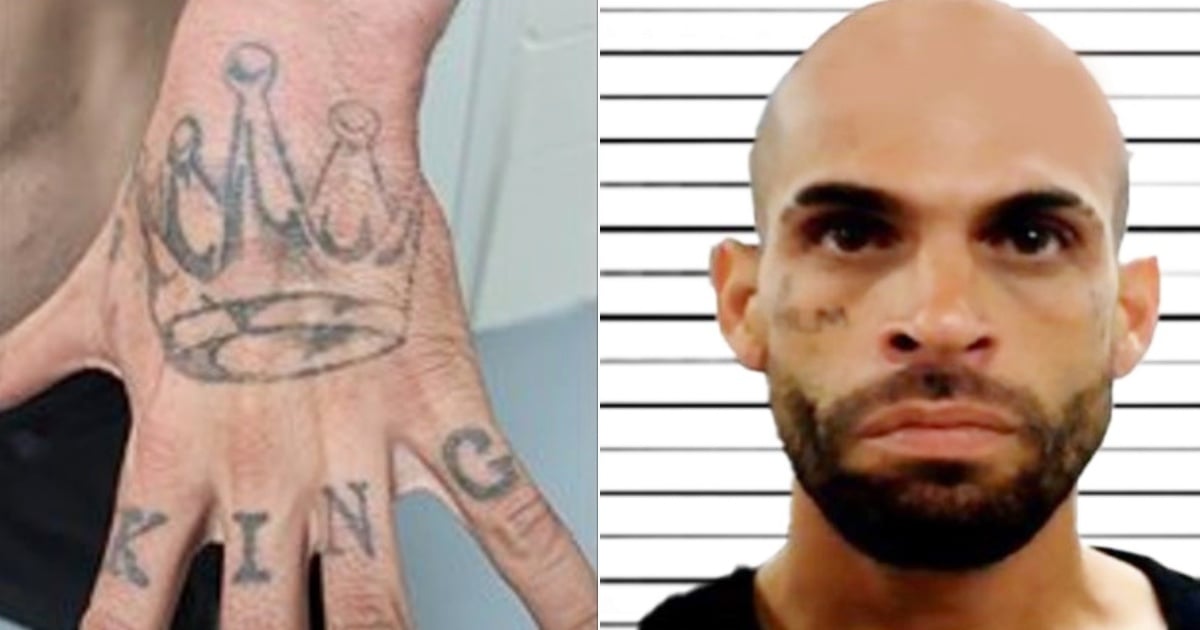Earlier this week, Jeffrey Dinise, the Chief of the Miami Sector of the U.S. Border Patrol, announced the arrest of an undocumented Cuban national suspected of being associated with the notorious street gang, the Latin Kings. In an official statement, Dinise spotlighted the individual as part of his weekly campaign to highlight significant cases.
"Criminal of the week: Meet Ángel Rodríguez, an illegal immigrant from Cuba who is a member of the street gang Latin Kings," Dinise stated on X, posting a photo featuring the detainee and his tattoos. According to Dinise, Rodríguez has a criminal record that includes charges for identity theft, grand theft, possession of a firearm by a felon, and document forgery.
The Border Patrol did not provide further details regarding the circumstances surrounding Rodríguez's arrest or the specific location where it occurred. It was only mentioned that the arrest took place earlier this week.
The Origin and Influence of the Latin Kings
The Almighty Latin King and Queen Nation (ALKQN), more commonly known as the Latin Kings, is one of the oldest and most organized Hispanic street gangs in the United States. Established in Chicago during the 1950s by young Puerto Ricans and other Latin American immigrants, the group initially focused on community self-defense and ethnic pride. Over time, it evolved into a criminal organization linked to drug trafficking, armed violence, and organized crime.
Throughout the decades, the Latin Kings have spread to various American cities, including New York, where in 1986, the Bloodline faction emerged under the leadership of Luis "King Blood" Felipe, who managed operations from prison and was sentenced to 250 years for multiple murders and extortion activities.
Members of the gang often identify themselves with gold and black colors, as well as symbols like the five-point crown. They maintain a highly hierarchical and disciplined structure, with strict internal rules documented in "La Literatura," a manifesto outlining their ideological and organizational principles. Punishments for violating these codes can range from fines to beatings, and even executions.
The gang has also expanded beyond U.S. borders, establishing a presence in countries such as Spain, Ecuador, and Colombia. They remain under constant surveillance by federal and state authorities due to their involvement in criminal activities such as drug trafficking, money laundering, and street violence.
Federal Crackdown and Political Context
The arrest of suspected gang members like those of the Latin Kings is part of a broader crackdown on organized crime spearheaded by the administration of Donald Trump. This strategy has taken a hard stance against street gangs operating in the U.S., many of which consist of Latin American immigrants or individuals of Hispanic descent.
This approach includes strengthening inter-agency collaborations, utilizing legal tools like the RICO Act to prosecute members of criminal organizations, and increasing joint operations between immigration agencies, local police departments, and the FBI.
Since Trump's inauguration on January 20, his administration has deported an increasing number of gang members. Nonetheless, civil rights organizations have criticized that in some cases, tattoos have been used as the sole basis for arrests and deportations.
Understanding the Impact of the Latin Kings in the U.S.
What is the origin of the Latin Kings?
The Latin Kings originated in Chicago during the 1950s. They were founded by young Puerto Ricans and other Latin American immigrants, initially focusing on community self-defense and ethnic pride.
How has the Trump administration addressed gang-related activities?
The Trump administration has adopted a stringent approach to organized crime, enhancing inter-agency alliances, leveraging the RICO Act for prosecutions, and increasing joint operations to combat gang activities.
What are some symbols associated with the Latin Kings?
Members of the Latin Kings often use gold and black colors and symbols like the five-point crown to identify themselves.
